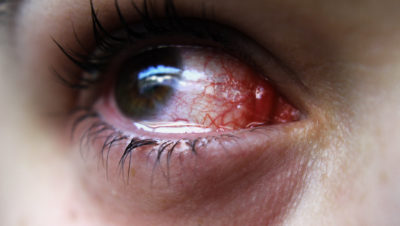The eyes are a beautiful sensory part of our body that allow us to see and perceive the world around us. At the same time, they are vulnerable and get affected easily under certain medical conditions, causing vision difficulties and even permanent vision loss. This is why paying attention to any problem in your eyes is pivotal.
Do you experience pain during eye movement or temporary vision reduction? If yes, then this can be a sign of optic neuritis. It is a condition when there is an inflammation in the optic nerve (a nerve that carries visual information from our eyes to the brain).
Most often, optic neuritis symptoms or its other form, like retrobulbar neuritis, are associated with multiple sclerosis (MS), a disease that inflames and damages nerves in the brain and optic nerve.
Optic nerve inflammation also occurs in other medical conditions, including infections and immune diseases like lupus. You should consult an eye doctor if there is any severity and get the treatment at the earliest.
This blog will discuss the details of optic neuritis, its symptoms, causes, and treatment options.
How to Identify Optic Neuritis?
Usually, optic neuritis affects one eye but can impact another eye as well, and the symptoms may include:
- Vision Loss:
In this eye condition, you witness sudden or temporary vision loss in one eye. Vision loss can last from hours to days and can be partial or complete.
2. Discomfort or Pain:
You experience pain or discomfort in this eye condition, which complicates your eye movement.
-
Visual Disturbances:
Optic neuritis creates visual disturbances like cloudy or blurry vision with changing colour perception.
-
Flickering Lights:
Individuals with this eye condition see flashing lights while moving their eyes.
You must be wondering why or how this eye disease is caused. Let’s understand its causes to be careful to protect your vision.
What are the Causes of Optic Neuritis?
In most cases of optic neuritis, no definite cause is identified to proceed with the examination. Here are optic neuritis causes:
-
Optic Neuritis is identified as an auto-immune disease, meaning that your body’s immune system accidentally invades the optic nerve.
-
Some infections, including syphilis, measles, and herpes, can trigger optic neuritis.
-
Drugs and intoxication are also associated to cause optic neuritis.
To stabilise your vision difficulty, seeking the proper medications and care is essential. Let’s unveil the ways to treat optic neuritis.
Risk Factors for Optic Neuritis
Significant factors contribute to the development of optic neuritis, including:
-
Age:
Optic neuritis usually triggered in adults aged 20 to 40.
-
Gender:
Compared to men, women are more likely to develop this eye condition.
-
Genetic Mutations:
A few genetic mutations are known to increase the risk of developing this eye condition.
How is Optic Neuritis Treated?
Healthcare professionals initiate the treatment for optic neuritis based on the underlying cause and the symptoms’ severity. Sometimes, this eye condition is resolved by itself. We have listed some treatment options to alleviate its symptoms and manage inflammation.
-
Pain Medications
To mitigate your pain and inflammation in the optic nerve, some over-the-counter medication work effectively. These help in keeping away the discomfort.
-
Treating Underlying Medical Ailments
Before treating optic neuritis, it is essential to treat underlying diseases like multiple sclerosis. This helps eye specialists to manage this eye condition better.
-
Corticosteroids
Corticosteroids are a drug category known to reduce inflammation and accelerate the healing process of optic neuritis. Eye specialists determine the dosage depending on the severity of the symptoms.
If you are diagnosed with optic neuritis and are concerned about your eye health, we recommend scheduling an appointment with our specialists. Our experts at Dr Agarwals Eyecare Hospital provide comprehensive care after the diagnosis and treatment of optic neuritis.
Leveraging top-notch facilities and the expertise of our healthcare professionals, you can get the best treatment for your eye conditions. Please take the next step and come to our hospital today!









